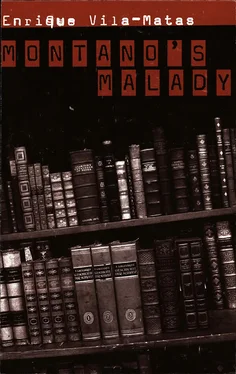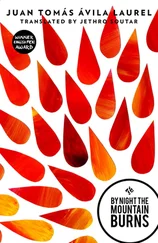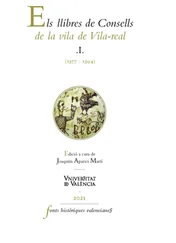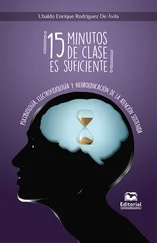“No doubt you’re thinking,” Montano said to me, “that I’m worried because I haven’t written anything since I published my book. But things are a little different. It’s not that I can no longer write, but that I’m constantly being visited by the ideas of others, ideas that arrive unexpectedly, that come to me out of the blue and take possession of my brain.” At this point he made a dramatic gesture. “To tell the truth, no one can write like this.”
I asked him, with a certain amount of distrust in what he had said to me, what kind of ideas these were that came to him out of the blue. And he explained that, for example, no sooner had I rung the doorbell than he had received a visit from Julio Arward’s personal memories.
“I don’t believe you,” I told him.
“Well, you should. It may seem strange, but it’s true. Julio Arward’s memory infiltrated mine and I saw a corner of the street in Málaga, Garriga Vela, where Arward lives. I saw this before you entered the house and thanked me for recommending that you read his novel. Have no doubt, I saw it before you said anything about Arward. I saw the corner of the street where he lives, and I also saw the bar, Comodoro Reading, which appears in that terrible novel where he copied Justo Navarro. Not only that, I saw the swimming pools in Granada, Baños de Simeón , which he went to once with his father when he was a boy….”
He almost certainly had to be fantasizing, perhaps childishly trying to conceal his anguish at his unfortunate inability to write. But in his slightly disturbed look there was a strange hint of truth.
I felt tired as a result of the journey and decided to take my leave, to withdraw to my hotel to rest. Besides, they had not expected me until tomorrow and had planned to have dinner this evening with some customers of the bookshop that they run here in Nantes. Again they insisted that I sleep in their home, something I do not intend to do. I propose to spend these days in Nantes without interfering in their life together. They gave me a lift to the Hôtel La Perouse and we arranged to meet for lunch the next day — I shall go around to the bookshop at midday. When we reached the door of the hotel, as I was getting out of the car, I tried to find out if all this about Arward’s memory having infiltrated my son’s memory was a passing invention, and I made a joke of it by asking him whether at that precise moment he was still receiving Arward’s personal memories.
“No, not now,” Montano replied very seriously. “But when we left home, I received a visit from Justo Navarro’s memory. It must be because his memory is infiltrating Julio Arward’s.”
Aline gave me a look as if to apologize for Montano’s words, which were possibly an attempt to appear clever in front of me and very different from what one might expect of a poor young man who has run out of ideas.
“And may we know what memory of Justo Navarro’s you received?” I asked him.
“His memory of the day — I don’t know if you remember — when he pretended to be you,” came the answer.
I reacted with equanimity, and took my leave until tomorrow.
A moment ago, pondering Montano’s words, I recalled a story by Jorge Luis Borges, “Shakespeare’s Memory,” the result of a dream that the Argentinian writer had in a room in Michigan, when he saw a faceless man who offered him Shakespeare’s memory; he did not offer him fame or glory — that would have been trivial — but the writer’s memory, the memory of the afternoon in which he wrote Act II of Hamlet .
* * *
I am going to bed, I feel tired after the journey and weary of so much writing in this diary I have kept for years, which today — when I wrote that sentence beginning “At the end of the twentieth century, the young Montano …”—I noticed could be driven by a mysterious impulse and become the beginning of a story that required readers, and not remain hidden among the pages of this private journal.
It is slightly absurd, all I needed now was to turn into a narrator. It is absurd most of all because I came to Nantes for a breath of fresh air, to try to stop literature from stifling me, at least for a while. I came to Nantes to see if I could forget a little that I am suffering from literature sickness.
And yet here I am now, in the Hôtel La Perouse, more book-sick than when I left Barcelona. Rosa may have been right when she told me that Nantes — with Montano suffering from a different strain of the same literary disease — was not exactly the best place for me to rest for a few days from my fearsome reviews and my sickly obsession for books and my habit of seeing everything from a literary viewpoint.
Rosa told me that I urgently needed a holiday: to change my excessive dependency on literature for some scenery and songs, to be a noncultural tourist, to take a break from my demanding work as a critic, to devote myself to the serene contemplation of Mother Nature—“To sit and watch how tomatoes, for example, grow in fields,” were her actual words — to observe sunsets and to think about her, to think more about her; she could not come with me because of work, but this is what I should do, think a lot more about her. Rosa, however, also told me not to go to Nantes, where my son — similarly wounded by letters, though for other reasons than mine — could aggravate my illness.
And here I am now, worse off than when I left Barcelona, suffering more as a result of the stifling encounter between a father and son, wounded — albeit with different scars — by the specter of literature: one (Montano) no doubt wanting to return to it, to literature; the other wishing he could forget it, at least for a while, but unable to do so for the moment and, to make matters worse, bogged down in the opening of something faintly resembling a literary narrative, and furthermore writing it in his diary.
How strange everything is. Father and son both suffering from a different strain of the same literary disease. How strange Montano was today, seated in his armchair at home in the rue du Calvaire, anxiously squeezing Aline’s hand, his literary horizon blocked by the dangerous novel, trapped in his own fiction or perhaps simply — if he is not making it up — by Arward’s and Navarro’s personal memories, trapped among the trapped, in Nantes, tragically reduced to a state of being unable to write and convinced that he won’t ever be able to write again.
Jules Verne was born here.
I cannot sleep, it is horrible, and I have picked up the diary perhaps just to write this, to say that Jules Verne was born here and, when he was young, walking along the canals in Nantes’ pretty river port, his eyes entranced by the brigantines, the caste of privateers and traffickers was long dead, their riches dispersed, though the ancient splendor still glimmered here and there among the ruins of the private city and a certain colonial fragrance still hung in the air.
I see now the lights of Nantes in the disquiet of this sleepless night and suddenly Aline springs to mind, and it strikes me that this apparently fragile woman is the very image of Jules Verne’s mother, whose name resembles a current of air: Sophie Allote de la Fuye. Aline’s name also has something of the fresh breeze in it and, even if this were not the case, I need to believe it, I need to trust that she will become my ally and be the current of air that will eliminate Montano’s literary illness and, if at all possible, mine at the same time.
Jacques Vaché was born here.
And here he committed suicide. Vaché is one of the main characters in Montano’s book about writers who gave up writing. Vaché went down in the history of French literature having barely lifted a finger, having written only a handful of letters to André Breton. An opium overdose ended his life in 1916 in Nantes, in the Grand Hôtel de France. The shade of this furtive poet accompanied Breton all his life. Breton used to admire him when he saw him walking along the streets of Nantes, dressed indiscriminately in the uniform of a hussar lieutenant, an aviator, or a doctor.
Читать дальше












